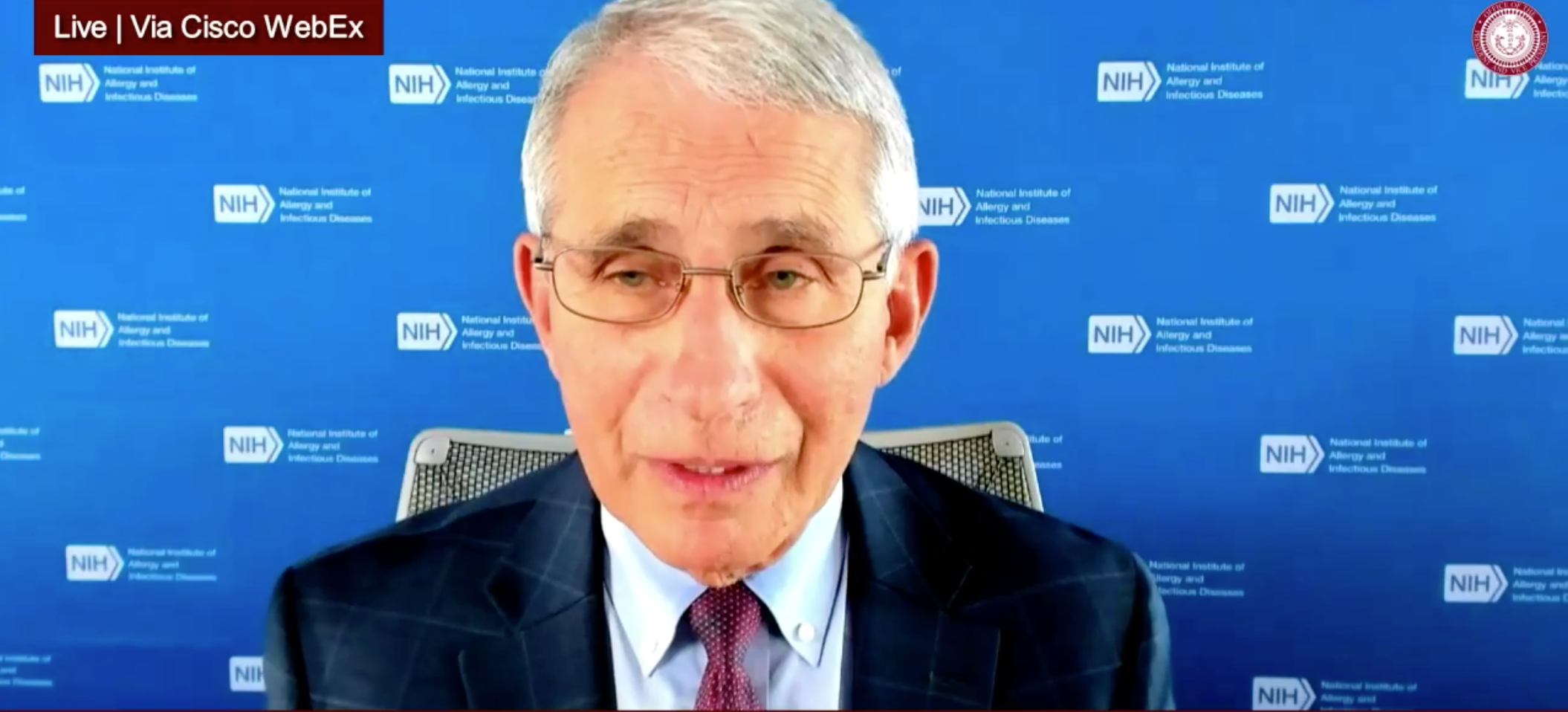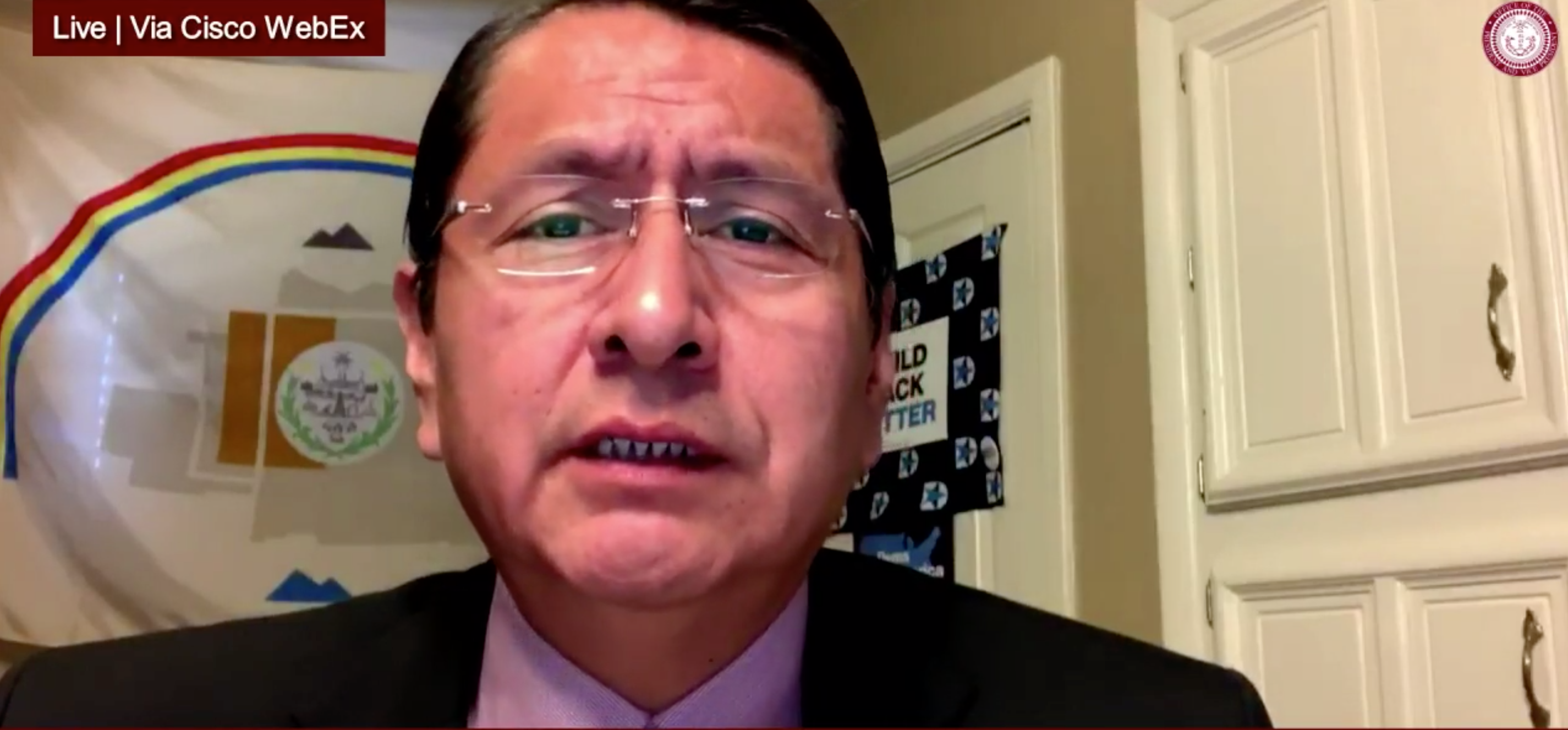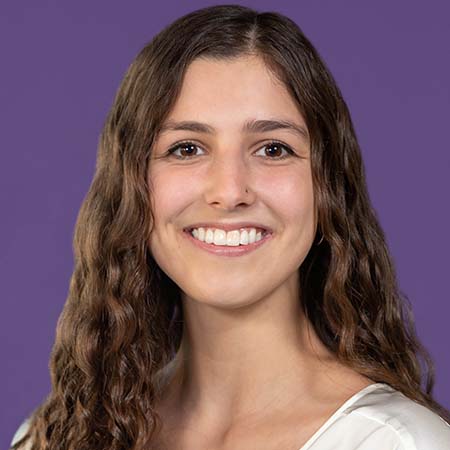
- Details
- By Amy Sokolow
The Navajo Nation has been hit among the hardest in the U.S. by Covid-19 cases, at 10,119, and deaths, at 548 out of a population of 173,000. Its response, which controlled the spread of the virus there, was praised on Monday by Dr. Anthony Fauci, director of the National Institute of Allergy and Infectious Diseases and the leader in the nation’s response to Covid-19.
Fauci joined Navajo Nation President Jonathan Nez and Vice President Myron Lizer in a virtual town hall to answer questions about the coronavirus and encouraged Navajo citizens to enroll in Covid-19 vaccine trials, despite their distrust of the vaccine, along with other minority groups.
Vice President Lizer, a Republican and supporter of President Donald Trump, raised concerns among residents about the unprecedented speed of vaccine development, from identifying the virus in January to closing in on the final stages of testing by this fall, otherwise known as “Operation Warp Speed.”
In response, Fauci assured Lizer that each vaccine trial is overseen by an independent group, the Data and Safety and Monitoring Board, which checks trial data regularly and flags concerns. Fauci cited the example of the Oxford University study in the U.K., which was paused earlier this month after a participant fell ill after being vaccinated, to show the board’s effectiveness.
“[This example] is a manifestation of why the system is working,” Fauci said. “It was able to pick up and recognize this adverse event and pause the trial.” He added that vaccines also must go through the FDA and are subjected to careful scrutiny of trial data for both efficacy and safety before being released to the public.
President Nez encouraged Navajo citizens to enroll in Covid-19 vaccine trials to ensure the safety of the vaccine for the larger Native population. “I think we all recognize that it's important to see the focus on diversity of our population... because not every vaccine works for various nationalities or body types,” he said.
 Navajo Nation President Jonathan Nez led a town hall with Dr. Anthony Fauci Monday, during which Nez encouraged residents to enroll in Covid-19 vaccine trials.
Navajo Nation President Jonathan Nez led a town hall with Dr. Anthony Fauci Monday, during which Nez encouraged residents to enroll in Covid-19 vaccine trials.
He added that, as a sovereign nation, Navajo citizens are allowed to participate in the trials “for the overall good of our people,” he said. The Navajo Nation has partnered with Pfizer and the Johns Hopkins Center for American Indian Health to ensure representation in their Phase III vaccine trials. The Lummi Nation will also be participating in vaccine trials in partnership with AstraZenica.
Dr. Laura Hammit, of Hopkins, spoke at the town hall about the safety of the trials, asserting that the placebo vaccine, injected into half of trial participants, is saline, that everyone is monitored closely after the injection for two years and that the Navajo Nation Human Research Review Board had carefully vetted the trial participation proposal prior to the partnership.
She added that Hopkins has partnered with the Navajo Nation for more than 30 years to test Phase III trials of vaccines for HIV, pneumonia and meningitis.
“These trials have enrolled tens of thousands of Americans, but unfortunately, Native Americans have effectively been denied the opportunity to participate in these clinical trials,” she said, citing the lack of trials outside urban areas and the lack of time drug makers have invested to create cultural adaptations of materials, as well as an unwillingness to undergo the tribal review process. “What that means is that we'll have little data to understand if the vaccines won't work as well in Navajo populations as they do in other populations to prevent this disease,” she said.
Fauci also hinted that the Navajo Nation may be among the first recipients of the vaccine once it’s approved, “because of the susceptibility to the complications that we've already seen with the Navajo Nation,” he said. The final triage order of recipients is pending a final decision by the Centers for Disease Control, though the National Academy of Medicine has already published a suggested priority order of vaccine recipients. If the Navajo Nation is among the first, residents could receive the vaccine this winter.
Fauci also answered questions about reopening schools both inside and outside the Navajo Nation, surveillance testing and the importance of mask-wearing and social distancing. He praised Navajo leadership for its fast and effective response to the virus.
“You have proven that when you do these public health measures [like mask wearing and social distancing], you can turn around a serious surge of infection,” said Fauci of the Navajo Nation’s efforts to bring down infection rates on its reservation. “I believe if the rest of the country looks at the model that the Navajo Nation has shown, that you can turn things around by carefully and assiduously adhering to the guidelines of avoiding infection.”
President Nez closed the meeting by comparing the pandemic to a monster.
“The stories of our way of life since time immemorial came in and fought these monsters that plagued our nation. They were hunger, old age, poverty, lice. And then as we move into modern-day life here, the new monsters are… alcoholism, drug addiction, depression, diabetes, cardiovascular disease, that put us in that vulnerable population,” he said. “The new monster that has snuck into our homes, in our community is COVID-19, and I think, by utilizing our way of life teaching... we have managed to push this monster at bay.”
More Stories Like This
Native News Weekly (August 25, 2024): D.C. BriefsNavajo Nation Mourns the Passing of Former Vice President Rex Lee Jim
Deb Haaland Earns Endorsement From Communications Workers of America Local 7076
University Soccer Standout Leads by Example
Two Native Americans Named to Democratic Congressional Campaign Committee's“Red to Blue” Program
Help us defend tribal sovereignty.
At Native News Online, our mission is rooted in telling the stories that strengthen sovereignty and uplift Indigenous voices — not just at year’s end, but every single day.
Because of your generosity last year, we were able to keep our reporters on the ground in tribal communities, at national gatherings and in the halls of Congress — covering the issues that matter most to Indian Country: sovereignty, culture, education, health and economic opportunity.
That support sustained us through a tough year in 2025. Now, as we look to the year ahead, we need your help right now to ensure warrior journalism remains strong — reporting that defends tribal sovereignty, amplifies Native truth, and holds power accountable.
 The stakes couldn't be higher. Your support keeps Native voices heard, Native stories told and Native sovereignty defended.
The stakes couldn't be higher. Your support keeps Native voices heard, Native stories told and Native sovereignty defended.
Stand with Warrior Journalism today.
Levi Rickert (Potawatomi), Editor & Publisher

